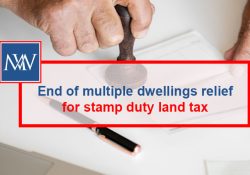VAT – A Summary
We highlight the key VAT areas you need to consider when running your business. If you are starting or have recently started a business in the Harrow area we, at Makesworth Accountants, can help you comply with the VAT regulations.
VAT registered businesses act as unpaid tax collectors and are required to account both promptly and accurately for all the tax revenue collected by them.
The VAT system is policed by HMRC with heavy penalties for breaches of the legislation. Ignorance is not an acceptable excuse for not complying with the rules.
We highlight below some of the areas that you need to consider.
It is however important for you to seek specific professional advice appropriate to your circumstances.
What is VAT?
Scope
A transaction is within the scope of VAT if:
- there is a supply of goods or services
- made in the UK
- by a taxable person
- in the course or furtherance of business.
Inputs and outputs
Businesses charge VAT on their sales. This is known as output VAT and the sales are referred to as outputs. Similarly VAT is charged on most goods and services purchased by the business. This is known as input VAT.
The output VAT is being collected from the customer by the business on behalf of HMRC and must be regularly paid over to them.
However the input VAT suffered on the goods and services purchased can be deducted from the amount of output tax owed. Please note that certain categories of input tax can never be reclaimed, such as that in respect of third party UK business entertainment and for most business cars.
Points to consider
Supplies
Taxable supplies are mainly either standard rated (20%) or zero rated (0%).
There is in addition a reduced rate of 5% which applies to a small number of certain specific taxable supplies.
There are certain supplies that are not taxable and these are known as exempt supplies.
There is an important distinction between exempt and zero rated supplies.
- If your business is making only exempt supplies you cannot register for VAT and therefore cannot recover any input tax.
- If your business is making zero rated supplies you should register for VAT as your supplies are taxable (but at 0%) and recovery of input tax is allowed.
Registration – is it necessary?
You are required to register for VAT if the value of your taxable supplies exceeds a set annual figure (frozen at £85,000 from 1 April 2017).
If you are making taxable supplies below the limit you can apply for voluntary registration. This would allow you to reclaim input VAT, which could result in a repayment of VAT if your business was principally making zero rated supplies.
If you have not yet started to make taxable supplies but intend to do so, you can apply for registration. In this way input tax on start up expenses can be recovered.
Taxable person
A taxable person is anyone who makes or intends to make taxable supplies and is required to be registered. For the purpose of VAT registration a person includes:
- individuals
- partnerships
- companies, clubs and associations
- charities.
If any individual carries on two or more businesses all the supplies made in those businesses will be added together in determining whether or not the individual is required to register for VAT.
Administration
Once registered you must make a quarterly return to HMRC showing amounts of output tax to be accounted for and of deductible input tax together with other statistical information. All businesses have to file their returns online.
Returns must be completed within one month of the end of the period it covers, although generally an extra seven calendar days are allowed for online forms.
Electronic payment is also compulsory for all businesses.
Businesses who make zero rated supplies and who receive repayments of VAT may find it beneficial to submit monthly returns.
Businesses with expected annual taxable supplies not exceeding £1,350,000 may apply to join the annual accounting scheme whereby they will make monthly or quarterly payments of VAT but will only have to complete one VAT return at the end of the year.
Record keeping
It is important that a VAT registered business maintains complete and up to date records. This includes details of all supplies, purchases and expenses.
In addition a VAT account should be maintained. This is a summary of output tax payable and input tax recoverable by the business. These records should be kept for six years.
Inspection of records
The maintenance of records and calculation of the liability is the responsibility of the registered person but HMRC will need to be able to check that the correct amount of VAT is being paid over. From time to time therefore a VAT officer may come and inspect the business records. This is known as a control visit.
The VAT officer will want to ensure that VAT is applied correctly and that the returns and other VAT records are properly written up.
However, you should not assume that in the absence of any errors being discovered, your business has been given a clean bill of health.
Offences and penalties
HMRC have wide powers to penalise businesses who ignore or incorrectly apply the VAT regulations. Penalties can be levied in respect of the following:
- late returns/payments
- late registration
- errors in returns.
Cash accounting scheme
If your annual turnover does not exceed £1,350,000 you can account for VAT on the basis of the cash you pay and receive rather than on the basis of invoice dates.
Retail schemes
There are special schemes for retailers as it is impractical for most retailers to maintain all the records required of a registered trader.
Flat Rate scheme
This is a scheme allowing smaller businesses to pay VAT as a percentage of their total business income. Therefore no specific claims to recover input tax need to be made. The aim of the scheme is to simplify the way small businesses account for VAT, but for some businesses it can also result in a reduction in the amount of VAT that is payable.
Making Tax Digital for Business: VAT
HMRC is phasing in its landmark Making Tax Digital (MTD) regime, which will ultimately require taxpayers to move to a fully digital tax system. Regulations have now been issued which set out the requirements for MTD for VAT. Under the new rules, businesses with a turnover above the VAT threshold (currently £85,000) must keep digital records for VAT purposes and provide their VAT return information to HMRC using MTD functional compatible software.
The new rules have effect from 1 April 2019, where a taxpayer has a ‘prescribed accounting period’ which begins on that date, and otherwise from the first day of a taxpayer’s first prescribed accounting period beginning after 1 April 2019.
HMRC is piloting MTD for VAT during 2018, ahead of its introduction in April 2019.
Keeping digital records and making quarterly updates will not be mandatory for taxes other than VAT before April 2020, although businesses below the VAT threshold which have voluntarily registered for VAT can opt to join the scheme.
As with electronic VAT filing at present, there will be some exemptions from MTD for VAT. However, the exemption categories are tightly-drawn and unlikely to be applicable to most VAT registered businesses.
How we can help
Ensuring that you comply with all the VAT regulations is essential. We can assist you in a number of ways including the following:
- tailoring your accounting systems to bring together the VAT information accurately and quickly
- ensuring that your business is VAT efficient and that adequate finance is available to meet your VAT liability on time
- providing assistance with the completion of VAT returns
- negotiating with HMRC if disagreements arise and in reaching settlements
- advising as to whether any of the available schemes may be appropriate for you.
If you are starting, or have recently started a business in the Harrow area and you would like to discuss any of the points mentioned in this VAT summary please contact us at Makesworth Accountants.
Need Accountancy Support?
For information on bespoke training, or if you have any other questions for Makesworth Accountants, please fill in your details below






















 148
148